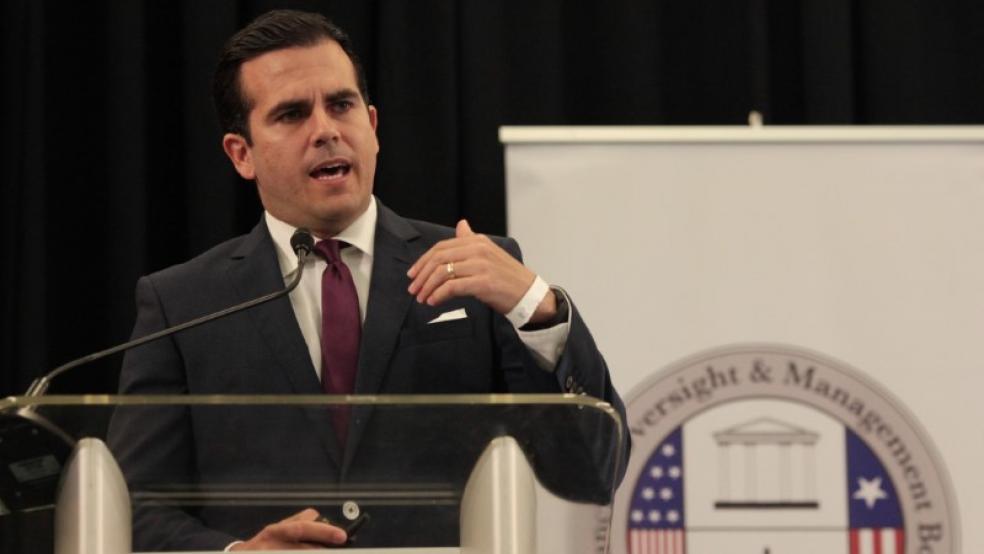NEW YORK (Reuters) - Puerto Rico's government will pay about $2 billion a year to ensure continued payouts to beneficiaries of the U.S. territory's impoverished pensions, Governor Ricardo Rossello said on Wednesday.
Presenting the U.S. territory's $9.6 billon budget for fiscal 2018, Rossello said the government would assume pension payments from its general fund while cutting government operating expenses by 9 percent."We take a difficult step for the budget, but we guarantee the pensions of all our retirees," Rossello said in Spanish, garnering applause from hundreds of lawmakers and others in the island's capitol building in San Juan.Puerto Rico's $49 billion in unfunded pension obligations are a key piece of a historic economic crisis that has landed the island in the biggest bankruptcy in U.S. municipal history.It also faces $70 billion in bond debt, a 45 percent poverty rate, and near-insolvent public health systems.Rossello unveiled his budget on Wednesday after gaining approval from Puerto Rico's federally appointed oversight board, created last year by U.S. lawmakers to manage the island's finances.The budget needs approval by Puerto Rico's legislature, but is not expected to change drastically.Rossello's budget would cut government purchase expenses by 40 percent and payroll by 13 percent, while reducing taxes and establishing a reserve fund to avoid employee furloughs, a move ordered by the oversight board.The budget conforms to a fiscal turnaround plan approved by the board this year, which provides only about $800 million a year to pay debt, less than a quarter of what Puerto Rico owes.That has riled creditors hoping to avoid large haircuts.Puerto Rico's three largest pensions face a roughly 99 percent funding gap, thought to be the biggest in history for a U.S. state-level retirement system.With the pensions' reserve funds either depleted or set to run out this year, Puerto Rico had two options: assume pension payments from its general fund, a so-called pay-as-you-go system, or cut benefits to pensioners."We are reducing spending, and, to a large extent, it has been necessary to protect one of the most vulnerable sectors of our populace," Rossello said, referring to retirees. (Reporting by Nick Brown; Editing by James Dalgleish)Puerto Rico budget to protect pension payments: governor

Alvin Baez



